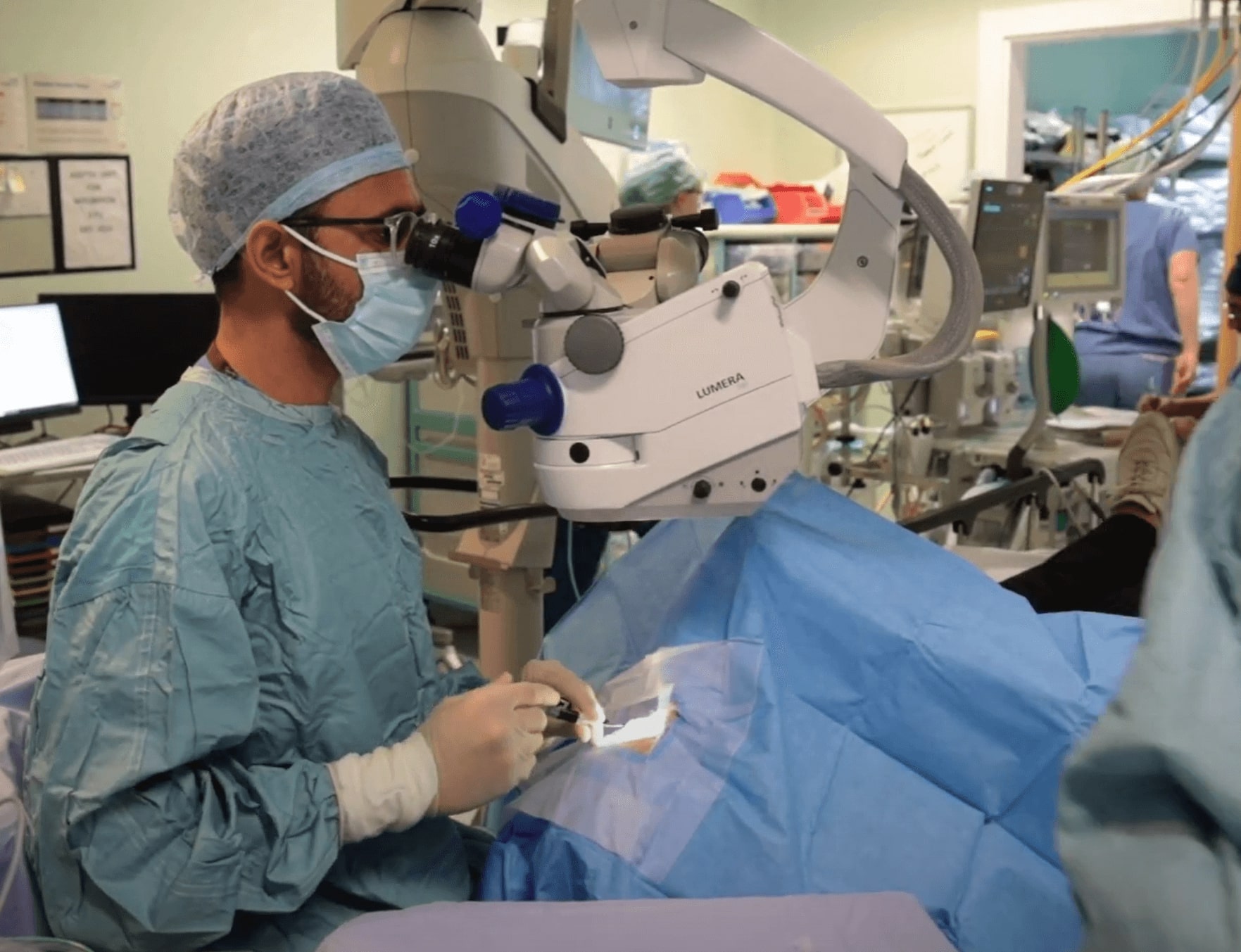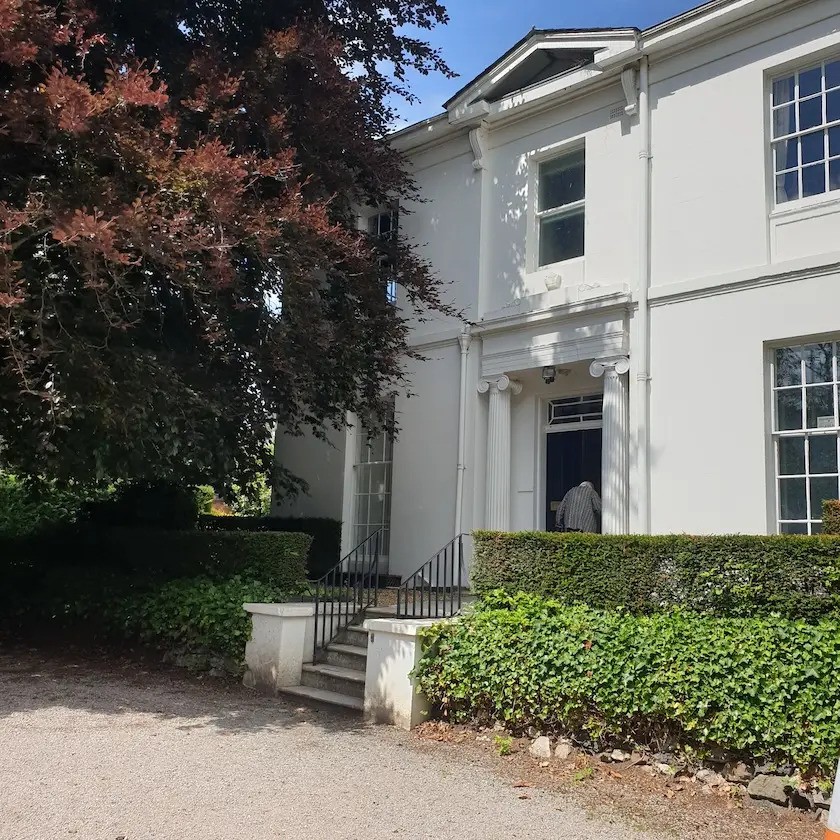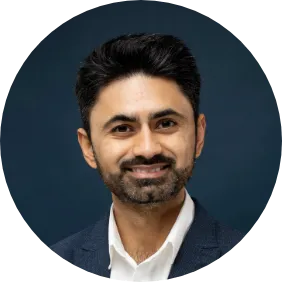What Makes a Top Eye Specialist in Birmingham?
15 May 2025
Choosing the right eye specialist in Birmingham means finding someone who combines world-class medical expertise with a warm, patient-focused approach. A top specialist like Mr. Dilraj Sahota brings both cutting-edge training and years of NHS experience to his practice. Trained at Oxford University and with an advanced fellowship at Moorfields Eye Hospital, he blends academic excellence with compassion. Based in Edgbaston, Birmingham – and serving areas from Solihull to Sutton Coldfield – he offers personalised care without the long waits.
Book Your Complimentary Suitability Assessment- Video Consultation with Mr. Dilraj Sahota
Defining Specialist Excellence in Eye Care
Before diving into credentials, it helps to understand the difference between general eye care and subspecialty care. In Birmingham, as elsewhere, optometrists and ophthalmologists (eye specialists) play different roles:
- Optometrists (General Eye Check): Typically conduct routine eye exams, detect refractive errors, and prescribe glasses or contact lenses. They work in high-street clinics and can spot basic eye conditions, but do not perform surgery.
- Ophthalmologists (Eye Specialists): Medical doctors trained in diagnosing and treating all eye diseases and performing surgeries. They can handle complex cases like cataracts, retinal disease, glaucoma, and uveitis, using advanced surgical and medical treatments.
Subspecialty Roles: Retina, Cataract & Uveitis
Within ophthalmology, doctors often subspecialise. A retina specialist is an ophthalmologist with extra training to manage retinal and vitreous diseases, from age-related macular degeneration and diabetic retinopathy to retinal tears. By contrast, a cataract specialist focuses on lens surgery to remove cataracts and implant corrective lenses, using premium IOLs to reduce dependency on glasses. A uveitis specialist treats inflammation of the eye’s middle layer (the uvea) – often linked to systemic autoimmune issues. Uveitis can be complex and vision-threatening, so a specialist like Mr. Sahota (who completed a Moorfields fellowship in retina and uveitis) is trained to manage these cases. In short, choosing a subspecialist means your doctor has extra expertise for your specific condition.
Advanced Training & Prestigious Credentials
Top eye specialists in Birmingham have rigorous medical training and credentials. Mr. Sahota, for example, earned his medical degree at the University of Oxford and London, then completed specialist ophthalmology training in the West Midlands. He went on to advanced subspecialty fellowships in medical retina, cataract, and uveitis – including a prestigious fellowship at Moorfields Eye Hospital (a world-leading eye center). The Royal College of Ophthalmologists oversees UK training: Mr. Sahota earned his FRCOphth (Fellowship of the RCOphth), the highly regarded qualification for UK eye surgeons. This signifies that he passed a series of demanding exams confirming his expertise in eye care and surgery.
He now serves as a Consultant Ophthalmologist at Russells Hall Hospital. In that high-volume NHS role he holds retina and uveitis clinics and busy cataract lists using advanced technology. Notably, he was part of a team that set a trust record by completing 21 cataract surgeries in a single day at Russells Hall – a testament to his surgical skill and efficiency. These NHS credentials ensure he meets stringent quality standards.
His commitment to excellence is also recognized by professional memberships. He is a Fellow of the Royal College of Ophthalmologists and belongs to specialist societies like the UK & Ireland Society of Cataract & Refractive Surgeons, the European Society of Retina Specialists, and the European Society of Cataract & Refractive Surgeons. These affiliations reflect his dedication to staying at the forefront of eye care. In Birmingham, such prestigious qualifications give patients confidence that they are seeing a true expert.
Fellowship Training & Rigorous NHS Ophthalmology Pathway
The path to becoming a top eye consultant is long. After medical school, ophthalmologists complete a multi-year Specialist Training (OST) program. During this time they pass the FRCOphth exams (a demanding set of theory and clinical tests) and gain wide experience in clinics and surgery. Many then pursue fellowship subspecialty training, often at leading centres. Moorfields Eye Hospital in London, for example, offers 1–2 year clinical fellowships in fields like medical retina, cataract, and uveitis. Completing such fellowships means extra hands-on training in complex cases. Mr. Sahota’s fellowship at Moorfields gave him advanced skills in retinal diagnostics and the management of chronic uveitis – experience that few general ophthalmologists have.
Through this rigorous NHS training and fellowship path, he achieved broad expertise: from premium cataract surgery techniques to advanced intravitreal therapies for retinal disease. This depth of training ensures that when local patients choose him as their Birmingham eye specialist, they benefit from the highest UK standards of care.

Cutting-Edge Technology & Innovative Diagnostics
Top eye specialists distinguish themselves not just by skill, but by using the latest technology. Mr. Sahota’s clinics are equipped with state-of-the-art diagnostic tools to catch eye problems early and plan precise treatments. A key example is high-resolution retinal imaging:
High-Resolution Retinal Imaging (OCT, OCT Angiography)
Optical Coherence Tomography (OCT) is like an ultrasound of the eye using light waves. It provides incredibly detailed cross-sectional images of the retina and macula. By capturing micrometer-scale slices, OCT can reveal subtle disease changes long before patients notice symptoms. For instance, an OCT scan can detect early diabetic retinopathy, age-related macular degeneration (AMD), glaucoma changes, and other conditions. In fact, OCT can see disease progression even earlier than a visual field test can. OCT-Angiography (OCTA) goes further by imaging the blood vessels in the retina without any dye injection, giving a detailed view of circulation. These tools let a specialist identify problems like wet macular degeneration or blocked vessels quickly.
At his private eye clinic in Edgbaston, Birmingham, Mr. Sahota emphasises these imaging modalities. His practice integrates state-of-the-art imaging such as OCT angiography and advanced therapies, including intravitreal injections and implants, to achieve the best possible outcomes. In practice, this means patients get 3D retinal scans that guide treatment decisions. For example, a subtle sign of wet AMD (fluid under the retina) would be caught early by OCT, allowing prompt injection therapy. Likewise, tools like the Pentacam AXL ensure precision for cataract surgery planning (mapping corneal shape and lens power).
By combining these high-tech diagnostics with clinical expertise, a Birmingham eye specialist like Mr. Sahota can tailor care precisely to each patient. Advanced imaging not only enhances surgical safety, but also provides reassurance: seeing the retina in detail often helps patients understand their condition and trust the treatment plan.
Proven Outcomes & Compassionate Patient Care
Exceptional training and technology must be matched by real-world results and genuine empathy. Mr. Sahota’s practice is known for outstanding outcomes and patient-first care, as illustrated by both a complex case and heartfelt testimonials.
Case Study: Complex Uveitis Diagnosis
Consider David, a patient with severe uveitis (intraocular inflammation) who had consulted 28 different doctors without success. When David came under Mr. Sahota’s care, he confidently ascertained the diagnosis and a treatment plan. After specialised tests to confirm the diagnosis and medication, his eye improved dramatically. As he shared, “My vision is brilliant now, and I have next to no redness in my eye. I have full confidence that my eye will return to full health, something I didn’t have before.”. Impressed by his dedication, he noted that Mr. Sahota “went above and beyond” – even phoning him outside of hours to check on his medication and fitting him in for an emergency appointment despite a full clinic. This real-life example shows how a top specialist handles the most challenging cases: with diagnostic skill and tireless attention to the patient’s well-being.
Patient Testimonials: Compassion Meets Expertise
Our patients’ voices say it best. For example:
“You gave me the confidence… I now have my sight restored.” — Karen C. Uveitis and Cataract Patient
“Brilliant care, eleven out of ten.” — Peter B. Cataract Patient
These kinds of comments – received via feedback and review platforms – highlight the blend of compassion and technical excellence patients experience at DS Eye Surgeon. Patients frequently remark on Mr. Sahota’s calm, reassuring manner and clear explanations. One shared how her “considerable anxiety” about cataract surgery was eased on the day by his friendly, patient approach. Another said simply, “I can see again, I can drive again – it has uplifted my confidence.”.
In practice, “patient-first” means listening closely and giving each person individualised time. Whether it’s a cataract follow-up, a macular degeneration check, or a worried patient with flashes and floaters, the care team treats you as a whole person. Continuity of care – the same consultant from consultation through recovery – is part of that promise. This is why many patients feel truly cared for: their outcomes improve, and their experience leaves them feeling heard and hopeful.

Leadership, Research & Community Impact
Beyond the Birmingham eye clinic, a top specialist contributes to the field and the community. Mr. Sahota’s academic and leadership roles demonstrate this commitment.
Academic Contributions & Professional Affiliations
He actively shares his expertise through professional societies and teaching. As a senior member of the West Midlands Ophthalmology training scheme, he serves as a College Tutor in the School of Ophthalmology. In this role he mentors junior ophthalmologists, delivers teaching sessions, and maintains the high training standards set by the Royal College of Ophthalmologists. His dedication to education has even earned commendations from Moorfields Eye Hospital and others, recognising him as a top-rated trainer.
Internationally, he engages with peers by presenting at major conferences. For example, he has spoken at the European Society of Cataract and Refractive Surgeons (ESCRS) and the European Society of Retina Specialists (EURETINA) meetings. Being active in these forums means he stays current with global advances and brings new techniques back to Birmingham.
Professionally, he is a Fellow of the Royal College of Ophthalmologists and a member of key specialist societies (UKISCRS, ESRS, ESCRS). These affiliations reflect leadership and peer recognition. They also ensure he follows strict guidelines and ethical standards in patient care and research.
Education & Clinical Outreach
Education isn’t only for doctors. Mr. Sahota also contributes to community and multidisciplinary education. He gives lectures and for local optometrists, so they can spot eye problems early and refer patients appropriately. He publishes clinical articles (for example, on ozurdex implants in retinal vein occlusion) and writes patient-friendly guides to eye health. Recently, he authored an article on the role of AI in detecting macular degeneration for Top Doctors, explaining complex advances in accessible language. By bridging clinical research and patient education, he helps raise awareness about eye diseases in Birmingham and beyond.
Involvement with the NHS trust and community also counts. As part of the Dudley Group NHS Foundation Trust, he has participated in service improvements (like the high-flow cataract initiative) that benefit the West Midlands population. This leadership in both academic and local settings underscores his role as a community eye care champion.


Your Journey to Clear Vision and a Brighter Future: Final Thoughts & Next Steps
Finding the best eye specialist in Birmingham means looking for someone who offers both world-class skills and personal care. Mr. Sahota exemplifies this blend. With top-tier training (Oxford University, Moorfields Eye Hospital), NHS and private expertise, and the latest surgical tools, he provides comprehensive care to Birmingham-area patients. Whether you live in central Edgbaston or the suburbs of Solihull or Sutton Coldfield, you can access his clinic conveniently. His dual roles in the NHS (Russells Hall Hospital) and private practice ensure that the same high standards apply to every patient.
As you consider your eye health journey, remember that expertise goes hand-in-hand with compassion. Top specialists will answer your questions, involve you in decisions, and guide you through every step – from diagnostics to postoperative care. If you have cataracts, macular degeneration, uveitis, or other concerns, Mr. Sahota’s practice offers the personalised attention you deserve.
Ready to take the next step? Book Your Complimentary Suitability Assessment- video consultation with Mr. Dilraj Sahota to discuss your needs. It’s a quick way to get expert advice and see if our clinic feels like the right fit. Book today and start your journey to clearer vision.
